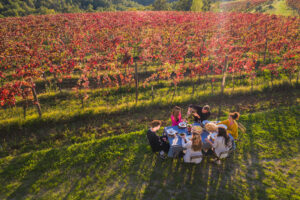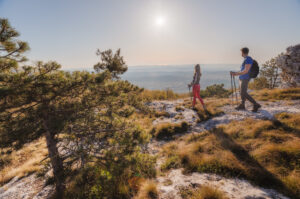Moving with family
Moving for study or work can be a difficult process, and having the support of your family can significantly ease the transition. Being able to rely on your family can provide a sense of stability, security and comfort when settling in a new environment. Additionally, having family with you can help you adapt to a new setting more quickly and make new connections more easily. Besides, sharing your experiences with your family can often make the move more enjoyable.


RESIDENCE PERMIT FOR FAMILY MEMBERS
The majority of people can request for their family to join them only after a year after the issue of their temporary residence card. Unfortunately, this includes all people who were granted temporary residence permits on the basis of their studies.
However, there are some exceptions to who can request the unification of their family immediately:
People whose permits were issued for the purpose of work in research and higher education,
Blue card holders.
Therefore, we advise especially PhD students to request a permit for work in research and higher education. In this case, the applicant is the PhD student who submits the application with the supporting documentation. Read more on the process of getting a permit in the VISAS & PERMITS section of the webpage.
SPOUSAL WORK
Your spouse will be entitled to live in Slovenia, but not to work. To be entitled to work, they should first find a job and then change their permit in cooperation with their employer.
KINDERGARTENS
There are public and private kindergartens in Koper and in the coastal region.
Public kindergartens
To secure a spot in a public kindergarten, you should apply in March for the following school year. After you submit the application, your family income would be checked and based on that, the partial subsidy would be set. The full price of a kindergarten is EUR 650/month. If you get the lowest subsidy, you would have to cover 90% of the cost (i.e. EUR 585).
Be aware that kindergartens in coastal municipalities are totally full and it could be difficult to secure a spot.
Private kindergartens
There are some private kindergartens with concessions. If you choose one of these, you should also apply to the municipality, which offers subsidies, and then pay extra for the extra services, depending on the kindergarten.
All of these kindergartens also offer English in their programmes:
Račka
– Catholic kindergarten
– Vegetarian food
– Website
Mehurčki
– Smaller groups
– Pleasant
– Can adapt the food
– Positive feedbacks
– Website
Hiša otrok Obala
– Montessori kindergarten
– Pescetarian lunches
– Montessori approach, English and Italian
– Website
Other options:
Private childcare
– Smaller, maxium 6 children per nanny
– No subsidy
– Different pricing
Hiša otrok Mozaik
– Motessori childcare
– It is childcare, not a kindergarten
– Generally, it should have some spots available
– Website
Waldorf childcare
– In Žusterna
– Mixed feedbacks
– Website
Marijino varstvo Izola
– Montessori kindergarten run by nuns
– In Izola
– We do not have any direct feedback
– Website
SCHOOLS
All children aged 6 to 15 (± a year) in Slovenia attend elementary school, which lasts for 9 years. Any elementary school in your area has to accept your child. However, we recommend you try to enrol your child in a bigger school (Osnovna šola Koper), as they will have more resources and staff working on integration.
There are no international schools in Primorska. The closest international elementary schools are in Ljubljana (public school Danila Kumar International School and some private schools) and Trieste (The International School of Trieste).
As Primorska is officially a bilingual area, there are Slovene-speaking and Italian-speaking elementary schools and high schools.
Secondary education in Slovenia is divided into general education (gimnazija), vocational and secondary technical education. General secondary education lasts 4 years and ends with an external examination (called matura). This exam grants students access to university and other post-secondary vocational and professional higher education programmes.
Vocational and technical secondary education is meant to prepare students for a profession. These school programmes last from 2 to 5 years. They finish with a final exam.
Each year in February, pre-enrolment announcements for secondary schools are published. Schools also organise Information Days when students can get to know the programmes offered by a particular school. Secondary school enrolment applications have to be submitted by a given date in March. If there are more applications than available vacant places, a school may limit enrolment.
